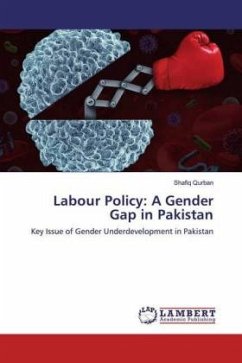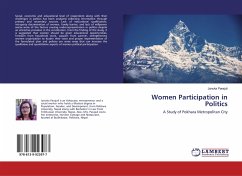Gender gap is wide spread phenomena of the Pakistani society and has always been given a low priority by every Pakistani government due to the complex nature of rules and procedures of law, absence of legal support, and male chauvinism. Despite realization of this problem at social and political level, little has been achieved as far as resolution of this predicament is concerned. Policy makers acknowledge the existence of this gender gap and have been presenting different policies and reforms to tackle the problem but with little success. The current labour policy has also acknowledged this fact and contains a lot of rhetoric as to the solutions to reduce the gender gap. The underlying impediment to practical reduction of gender gap is the lack of political and social will. Thus, policies are rarely implemented in an effective manner. The main causes of gender gap are grounded in patriarchal norms and values, low literacy rate, and familial problems. Policies designed so far to tackle the issue are narrowly targeted to urban areas while majority of women live in rural areas and are a part of unregulated informal economy.
Bitte wählen Sie Ihr Anliegen aus.
Rechnungen
Retourenschein anfordern
Bestellstatus
Storno








